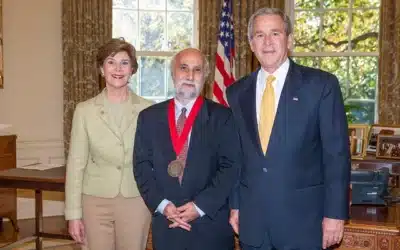The myth of the Afghan safe haven just won’t die.
In 2001, after the 9/11 attacks, the United States invaded Afghanistan and quickly smashed the Taliban government. It also killed hundreds of members of the al Qaeda group that had launched the attacks, although leaders Osama bin Laden and Ayman al Zawahiri escaped to Pakistan, along with about 200 followers. Ever since, we have been told that the U.S. military occupation of Afghanistan must continue indefinitely or else al Qaeda will return and make the country once again into a “safe haven” from which to attack the United States. In U.S. political discourse and news stories, this has often been stated as a flat fact, beyond dispute.
This article was originally published in the January/February edition of The American Conservative magazine.
Last August, Donald Trump invoked the threat of Afghanistan as a terrorist sanctuary torationalize extending the already 16-year war indefinitely and increasing the U.S. military presence by at least 4,000 troops. The president cited the same argument heard since 9/11: “A hasty withdrawal would create a vacuum that terrorists—including ISIS and al Qaeda—would instantly fill.” In his speech outlining the policy, Trump added that his government would not negotiate with the insurgency until some undefined point years from now. “Nobody knows if or when that will ever happen,” he said. The implication was that U.S. forces must stay and fight indefinitely or the country will once again become a base from which terrorists can attack America and its allies.
This safe haven argument is a myth—a false but widely believed tale used to justify continuing a policy of perpetual failure. President Barack Obama often invoked this safe haven myth to justify his Afghan surge of 2009-2012, which moved some 60,000 extra troops into the country and brought the U.S. military contingent to nearly 100,000. He invoked it also to justify his decision to keep nearly 10,000 there through his presidency, thus reversing his promise to end the war. The conventional wisdom insists that Obama’s decision to temporarily pull troops out of Iraq led to the rise of the Islamic State (ISIS) and its short-lived “caliphate” in western Iraq and eastern Syria. But in fact a much greater factor was the Bush administration’s invasion of Iraq in the first place and Obama’s later support for the violent uprisings in Libya and Syria. In Yemen, the war against al Qaeda and the eventual regime change and war against al Qaeda’s enemies, the Houthis, have likewise increased the bin Ladenites’ power and influence there.
But leaders of both U.S. political parties and major media outlets have supported these policies, and to justify that position they ignore the role of Iraq and Obama’s post-Iraq interventions in exacerbating the situation. Instead, they say, the ceasing of intervention in any area causes matters to become worse.































